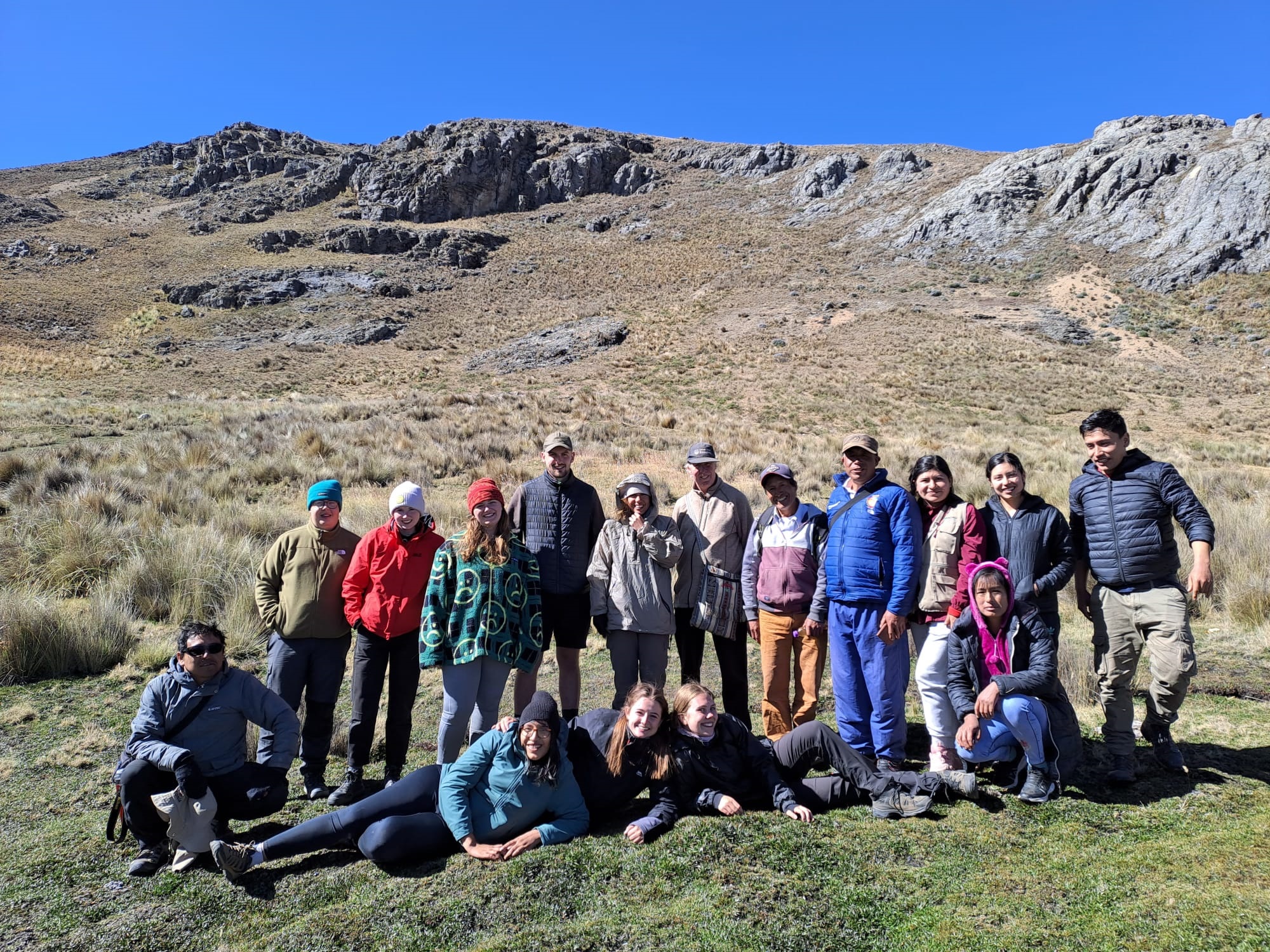- Andean region
By Diana Santos Shupingahua
Food Systems Specialist, Eclosio
Translation of the original article in Spanish, available here
The connection between knowledge gained in the field and knowledge acquired in the classroom has always been part of Eclosio’s work. As a university-based NGO, the organisation has made it one of its principles to facilitate conditions for the exchange and co-construction of knowledge in an inclusive and fair manner. Under these premises, it has ensured the development of institutional collaborations with study centres in Peru and other countries.

Photo 1. Farmers, students, teachers and project team in the Ampirá wetland.
Since 2021, Eclosio has been collaborating with the University of Reading on the CROPP[1] project and locally with the Santiago Antúnez de Mayolo University (UNASAM) on the SAMA project. These collaborations are based on a participatory action research approach in which farmers – referred to as Farmer Researchers in the project – students, teachers, researchers and the project team work horizontally. An example of this was the visit by the CROPP research team and six students in the second half of June, with the mission of visiting eight communities in just 15 days. During that visit, two conferences were held with UNASAM and various government and civil society actors to share the initial results of the study, which showed the deterioration of water resources in the area due to climate change and how this was affecting agriculture. Similarly, farmers presented their testimonies as the main actors and the most vulnerable in the face of this problem.